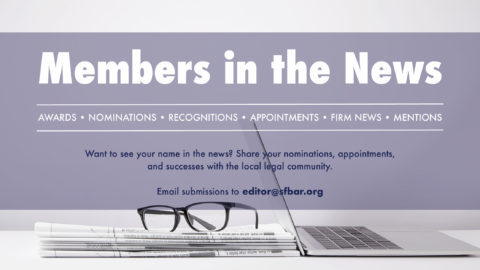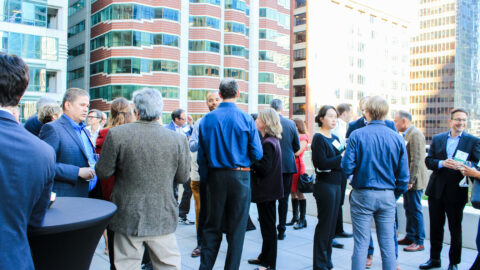 Networking is a word that strikes fear in the soul of introverts and challenges extroverts to compare imagery of a beach in Mexico with a reality of laminated name tags. What is networking? Students are told it will help a law career. Almost universally, eyes gloss over at the word. Let’s change our preconceived idea, and challenge what networking is.
Networking is a word that strikes fear in the soul of introverts and challenges extroverts to compare imagery of a beach in Mexico with a reality of laminated name tags. What is networking? Students are told it will help a law career. Almost universally, eyes gloss over at the word. Let’s change our preconceived idea, and challenge what networking is.
At different points in life, we have surrounded ourselves with people, and of those random assortments (high school/ college/ living in a new place), a few have stuck. We call these people friends. We don’t say we networked with people in our dorm. We don’t care if we met a friend because they were in the same philosophy class, basketball team or Amtrak car, or ate lunch at the same BBQ chicken joint as us. The point is: we know what it looks like to connect to somebody.
For adults not in college, who aren’t seeking a romantic partner, making new connections usually happens among peers and coworkers and can be called “networking” but may as well be called “adult friending.” That term sounds weird, like the millennial term “adulting”- so let’s just use “networking.” Networking is on the spectrum of friendship: an attempt to have a meaningful connection. Professionals agree to do it with certain boundaries (non-romantic/limited time frame).
How does networking help a law career? It’s akin to asking how friends help you: in every way. Including people in your orbit who are doing things you find interesting and talking about topics you are curious about: this creates a level of engagement and curiosity in your life and hope for the future that will sustain you. If you aren’t excited by things that can change or that you don’t know about, you’re in the wrong business. Legal professionals have a low level of self-described happiness, with high levels of suicide and depression, and high levels of alcohol and substance abuse. Networking is a clear way to combat that; by connecting with people plugged into things you don’t know about, you connect to a vision of yourself in a wise future and set yourself on a journey of a meaningful, interesting life where you are continually learning and getting better.
So why network? Not so much for the jobs it will create, although it will, and not so much for the friends you make, although you will, but because you chose to enter into a profession where truth and justice are tossed around as we debate the best ways to resolve the complicated task of organizing a society.
Change your idea of what networking is, and begin to see life, and your part in it, as what it really is: a fascinating collection of moving parts, some of which have names and, if given a chance, may inspire, challenge, help, and at the very least, share a cup of coffee with you. Maybe even a cup of coffee on a beach in Mexico.
Gabriel Leif Bellman, Esq., is the graduate class advisor at UC Hastings College of the Law and is a member of BASF’s Bay Area Mediation Services panel: www.sfbar.org/mediation.




